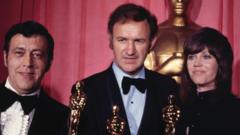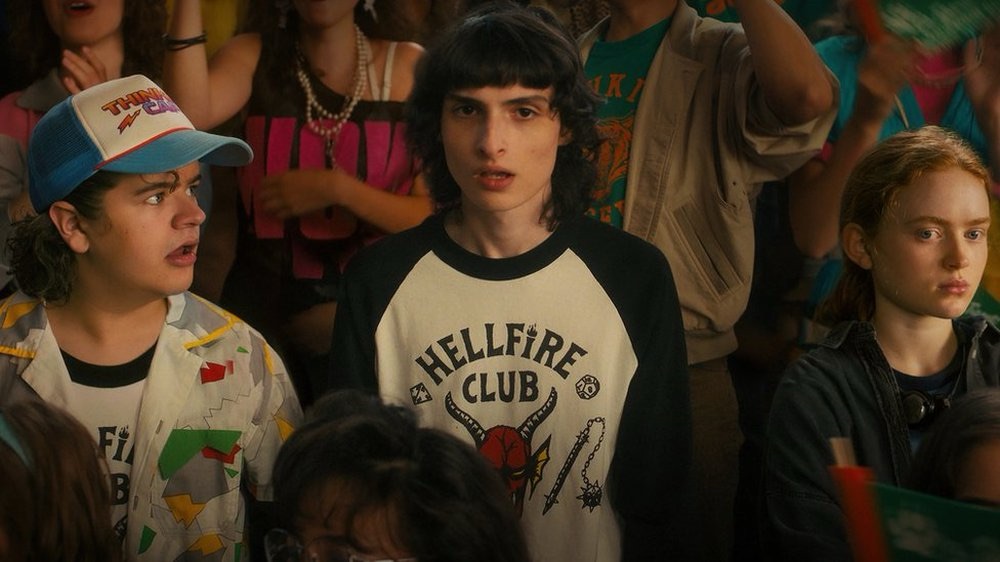Hackman, who died alongside his wife Betsy Arakawa and their dog at their New Mexico residence, was found under circumstances that police deemed "suspicious enough" to prompt investigation. The specifics of his death remain unreported, but officials revealed that he likely passed away on February 17th, almost ten days before the discovery of their bodies.
Director Barry Sonnenfeld shared his memories of Hackman, emphasizing that while Hackman relished acting, he constantly battled the associated processes—like hair and makeup, multiple takes, and studio directions—that he found frustrating. This sentiment was echoed by those who worked with him, revealing a man committed to his craft yet reluctant about Hollywood's theatricalities.
At pre-Oscar gatherings following the news of his passing, colleagues expressed their intentions to honor Hackman’s legacy. Actor John C. Reilly noted that the Academy would surely commemorate him to honor his immense contributions to the film industry.
Hackman’s precision in acting is well-documented. He was known for meticulously altering scripts by removing any notes that directed his emotional responses in scenes. Borrowing from his own instincts, he sought artistic freedom by insisting on making choices independent of the writers’ influences.
John Moore, who directed Hackman in "Behind Enemy Lines," recounted his first experience working with Hackman, noting his intimidating attention to detail and assertiveness on set—qualities that inspired respect among his peers. “Acting is my job, you do the rest,” Hackman quipped during a pivotal encounter, demonstrating his assertive approach to his art.
Notably, Hackman’s interactions on set were not always amicable. He famously confronted John Travolta during the shooting of "Get Shorty" over acting professionalism, highlighting the pressure he placed on maintaining high standards.
While he shared moments of tension with co-stars, Hackman was also able to elicit laughter and camaraderie, leaving a lasting impact on those who worked with him. Reflecting on Hackman’s famously brusque demeanor, Moore added that his primary focus was to elevate the projects they were involved in.
After retiring from acting in 2004, Hackman sought solace away from the pressures of Hollywood in Santa Fe, New Mexico. He acknowledged in a rare interview that although he missed the act of performing, the stress associated with the industry had become unbearable.
As tributes pour in following his untimely passing, it’s clear that Gene Hackman leaves behind not just a legacy of masterful performances but also a poignant reminder of the complexities of a life spent in the glare of the spotlight.
Director Barry Sonnenfeld shared his memories of Hackman, emphasizing that while Hackman relished acting, he constantly battled the associated processes—like hair and makeup, multiple takes, and studio directions—that he found frustrating. This sentiment was echoed by those who worked with him, revealing a man committed to his craft yet reluctant about Hollywood's theatricalities.
At pre-Oscar gatherings following the news of his passing, colleagues expressed their intentions to honor Hackman’s legacy. Actor John C. Reilly noted that the Academy would surely commemorate him to honor his immense contributions to the film industry.
Hackman’s precision in acting is well-documented. He was known for meticulously altering scripts by removing any notes that directed his emotional responses in scenes. Borrowing from his own instincts, he sought artistic freedom by insisting on making choices independent of the writers’ influences.
John Moore, who directed Hackman in "Behind Enemy Lines," recounted his first experience working with Hackman, noting his intimidating attention to detail and assertiveness on set—qualities that inspired respect among his peers. “Acting is my job, you do the rest,” Hackman quipped during a pivotal encounter, demonstrating his assertive approach to his art.
Notably, Hackman’s interactions on set were not always amicable. He famously confronted John Travolta during the shooting of "Get Shorty" over acting professionalism, highlighting the pressure he placed on maintaining high standards.
While he shared moments of tension with co-stars, Hackman was also able to elicit laughter and camaraderie, leaving a lasting impact on those who worked with him. Reflecting on Hackman’s famously brusque demeanor, Moore added that his primary focus was to elevate the projects they were involved in.
After retiring from acting in 2004, Hackman sought solace away from the pressures of Hollywood in Santa Fe, New Mexico. He acknowledged in a rare interview that although he missed the act of performing, the stress associated with the industry had become unbearable.
As tributes pour in following his untimely passing, it’s clear that Gene Hackman leaves behind not just a legacy of masterful performances but also a poignant reminder of the complexities of a life spent in the glare of the spotlight.





















